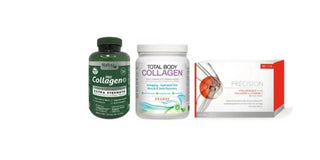Save 15% on Orders Over $150
Save 20% on Orders Over $300
Everything in Store! - *Excludes Ideal Protein Products. End January 3rd!
Product description
Preferred Nutrition - Berberine
Berberine is a bitter yellow plant alkaloid that has long been used in Chinese and Ayurvedic medicine. Berberine is found in several plants such as goldenseal and barberry. The medicinal use of Berberine goes back more than 3,000 years. Modern science has now identified precise mechanisms of action and given clear indications for the therapeutic benefits of berberine.
What does Berberine do?
What to expect from this product:
- Supports healthy blood sugar levels
- Supports cardiac function in patients suffering from heart failure
- Promotes gastric ulcer healing and Helicobacter Pylori clearance
- Provides antimicrobial activity against bacteria, viruses, fungi and parasites
- Improves cholesterol levels
- May help to improve liver function
- Preliminary research supports a role in Polycystic Ovarian Syndrome
- Helps to promote normal platelet counts
Who should use Berberine?
In the case of diabetes, human trials have shown that the use of berberine increases the production of insulin receptors in cell membranes. These receptors are needed for normal sugar metabolism. This effect is likely responsible for lower fasting blood sugar levels, lower blood sugar levels after meals, and improvements in blood sugar markers seen in patients after supplementation with berberine.
In terms of the cardiovascular benefits of berberine, it appears that the alkaloid improves the quality of life and cardiac function in patients suffering from heart failure. Indeed, patients reported an increased tolerance for exercise, less fatigue, and less episodes of shortness of breath. There were also fewer deaths reported in the berberine group. Berberine supplementation appears to decrease cholesterol levels and reduces inflammatory markers.
Berberine has been shown to possess antimicrobial properties and in several studies the plant extract was shown to improve symptoms associated with infectious diarrhea and parasitic infections. Test tube studies have shown that berberine can effectively suppress the growth of H. pylori in a dose dependant manner. In human studies, berberine compared favourably to antiulcer medication in patients suffering from gastric ulcers associated with infection with H. pylori. Results showed that while berberine was less effective at ulcer healing, it was more effective at clearing H. pylori. The extract was also effective against other common pathogenic bacteria such as Staph aureus, some species of Streptococcus and Ecoli. Similar effects were seen with fungus such as Candida albicans.
Berberine can also be used in Polycystic Ovarian Syndrome (PCOS). PCOS is the most common endocrine disorder in women and affects 5-10% of women of reproductive age. Berberine improves the physical symptoms and reproductive success in women affected with the condition. Furthermore, the extract compared favourably to metformin, an established drug when it comes to the improvement of insulin resistance, one of the hallmarks of PCOS.
In terms of liver function, in type 2 diabetics, berberine was shown to decrease liver enzyme levels while improving good cholesterol levels. In patients with low platelet counts, berberine was shown to significantly increase platelet production.
Berberine also appears to have promising effects for the treatment of glaucoma, drug addiction, menopausal symptoms and bone loss associated with menopause. With a multitude of established benefits, it is not surprising that this plant extract has such a long history of traditional use. As with other plants benefiting from a well-established ancestral use, modern research has now confirmed the benefits associated with berberine.




















